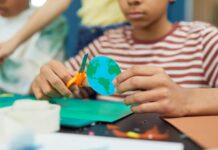
What is Personal Development?
Personal development refers to the process of self-improvement, encompassing various activities, strategies, and techniques aimed at enhancing one’s skills, mindset, and overall quality of life. It involves conscious efforts to develop and maximize one’s potential, achieve personal goals, and lead a fulfilling existence. In this article, we’ll delve into the depths of personal development, exploring its significance, components, benefits, and strategies for effective growth.
Introduction to Personal Development
Understanding Personal Growth
Personal growth is a lifelong journey marked by continuous self-reflection, learning, and adaptation. It involves becoming more self-aware, expanding one’s capabilities, and evolving as a person. Whether it’s developing new skills, refining existing ones, or overcoming challenges, personal growth is integral to realizing one’s full potential.
Importance of Personal Development
Personal development is essential for both professional success and personal fulfillment. It empowers individuals to take control of their lives, set meaningful goals, and strive for continuous improvement. By investing in personal development, individuals can enhance their self-confidence, resilience, and overall well-being.
Components of Personal Development
Self-Awareness
Self-awareness involves introspection and understanding oneself on a deeper level. It entails recognizing strengths, weaknesses, values, and beliefs, which serves as a foundation for personal growth. By cultivating self-awareness, individuals can make informed decisions, manage emotions effectively, and align their actions with their goals.
Goal Setting
Setting clear and achievable goals is fundamental to personal development. Goals provide direction, motivation, and a sense of purpose, guiding individuals towards their desired outcomes. Whether it’s advancing in a career, improving health and fitness, or nurturing relationships, goal setting empowers individuals to progress and succeed.
Continuous Learning
Lifelong learning is key to personal development. It involves acquiring new knowledge, skills, and experiences to adapt to a rapidly changing world. Whether through formal education, professional development, or self-directed learning, continuous learning enables individuals to stay relevant, innovate, and grow personally and professionally.
Emotional Intelligence
Emotional intelligence encompasses the ability to recognize, understand, and manage emotions, both in oneself and others. It involves empathy, self-regulation, social skills, and self-motivation, which are essential for effective communication, conflict resolution, and building meaningful relationships.
Time Management
Effective time management is crucial for personal development. It involves prioritizing tasks, setting deadlines, and optimizing productivity to make the most of available time. By managing time efficiently, individuals can reduce stress, accomplish more, and create space for personal growth activities.
Stress Management
Stress management techniques are vital for maintaining well-being and resilience amidst life’s challenges. Whether it’s relaxation techniques, mindfulness practices, or healthy coping mechanisms, managing stress effectively enables individuals to thrive in the face of adversity.
Benefits of Personal Development
Improved Self-Confidence
Personal development boosts self-confidence by empowering individuals to recognize their strengths, overcome limitations, and achieve their goals. As individuals progress and achieve success, their confidence grows, enabling them to tackle new challenges with optimism and resilience.
Enhanced Motivation
Engaging in personal development activities fosters intrinsic motivation, fueling a desire for self-improvement and growth. By setting and achieving meaningful goals, individuals experience a sense of accomplishment and fulfillment, driving them to pursue further growth and success.
Better Relationships
Personal development enhances interpersonal skills, communication, and empathy, fostering healthier and more fulfilling relationships. By understanding oneself and others better, individuals can navigate conflicts, build trust, and cultivate deeper connections with friends, family, and colleagues.
Career Advancement
Investing in personal development can lead to career advancement and professional success. By acquiring new skills, expanding knowledge, and demonstrating leadership qualities, individuals can position themselves for promotions, job opportunities, and greater job satisfaction.
Increased Resilience
Personal development cultivates resilience, enabling individuals to bounce back from setbacks and adapt to change effectively. By building emotional intelligence, coping skills, and a growth mindset, individuals can navigate challenges with confidence and emerge stronger and more resilient.
Strategies for Personal Development
Create a Personal Development Plan
Developing a personalized roadmap for growth is essential for effective personal development. By identifying goals, assessing strengths and weaknesses, and outlining actionable steps, individuals can chart a course for continuous improvement and success.
Practice Mindfulness
Mindfulness involves being present and fully engaged in the moment, without judgment or distraction. By incorporating mindfulness practices such as meditation, deep breathing, and mindful awareness into daily life, individuals can reduce stress, enhance focus, and cultivate inner peace.
Seek Feedback
Seeking feedback from others is crucial for personal growth and development. By soliciting constructive feedback from mentors, peers, and trusted advisors, individuals can gain valuable insights, identify areas for improvement, and accelerate their learning and growth.
Embrace Challenges
Embracing challenges and stepping outside of comfort zones is essential for personal development. By embracing new experiences, taking calculated risks, and learning from failures, individuals can expand their capabilities, build resilience, and achieve greater success.
Cultivate Positive Habits
Developing positive habits and routines is key to sustaining personal development efforts over time. Whether it’s practicing gratitude, exercising regularly, or maintaining a healthy work-life balance, cultivating positive habits fosters consistency, discipline, and long-term growth.
Conclusion
In conclusion, personal development is a transformative journey that empowers individuals to realize their full potential, achieve their goals, and lead fulfilling lives. By focusing on self-awareness, goal setting, continuous learning, and emotional intelligence, individuals can unlock new opportunities for growth and success. By implementing strategies such as creating a personal development plan, practicing mindfulness, seeking feedback, embracing challenges, and cultivating positive habits, individuals can embark on a path of self-discovery and lifelong improvement.
Lifelong Learning: The Path to Continuous Personal Growth
Creating Healthy Boundaries: Nurturing Self-Respect and Relationships
Building Resilience: Bouncing Back Stronger from Adversity
The Power of Adaptability: Thriving in Times of Change
Managing Stress: Techniques for Maintaining Calm and Composure
FAQs on Personal Development
- What are some practical ways to improve self-awareness?
- Answer: Practical ways to improve self-awareness include journaling, seeking feedback from others, practicing mindfulness, and engaging in self-reflection exercises.
- How can personal development benefit my career?
- Answer: Personal development can benefit your career by enhancing your skills, increasing your confidence, improving your communication and leadership abilities, and positioning you for career advancement opportunities.
- Is personal development a one-time effort, or is it an ongoing process?
- Answer: Personal development is an ongoing process that requires continuous effort, self-reflection, and adaptation. It involves setting new goals, acquiring new skills, and evolving as an individual over time.
- What role does emotional intelligence play in personal development?
- Answer: Emotional intelligence plays a crucial role in personal development by enhancing self-awareness, empathy, communication, and relationship-building skills. It enables individuals to navigate challenges, manage stress, and cultivate positive relationships effectively.
- How can I stay motivated to pursue personal development goals?
- Answer: Staying motivated to pursue personal development goals involves setting clear and meaningful objectives, breaking them down into manageable tasks, celebrating progress, and staying accountable through regular reflection and review.






















